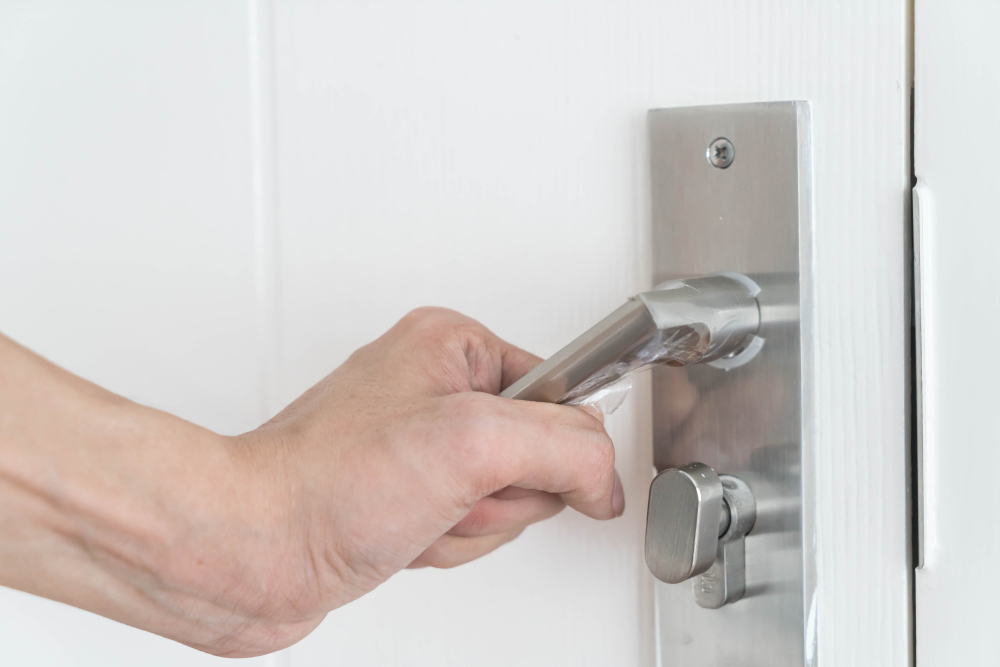
Locks are the unseen guardians of our homes and businesses, offering us peace of mind in knowing that our spaces are secured. But, like all things, locks require care and maintenance to ensure they perform at their best. Whether it's preventing a lockout emergency or simply prolonging the life of your hardware, knowing how to properly maintain your locks is crucial. In this comprehensive guide, we'll walk you through the important steps to keep your locks in top condition, including industry secrets and professional advice from seasoned locksmiths. Join us as we unlock the secrets to lock longevity and security sustainability.
Before you start any lock maintenance, it's essential to understand the basics. There are several types of locks, including pin and tumbler locks, wafer tumbler locks, and smart locks, each with its own unique components. These can include the cylinder, the plug, the pins or wafer tumblers, springs, the housing, and turning mechanism. Knowing how these parts work together will be valuable in maintaining your locks effectively.
This is the central part of the lock, often containing the pins that need to be aligned to open the fixture. It's important to keep the cylinder clean and free of debris that could affect the pins' movement.
The plug is the part of the lock that turns when the correct key is inserted. Keeping the plug and its associated mechanisms well-lubricated is essential for ease of movement.
The pins or wafers and the springs work together to prevent the lock from turning without the correct key. Maintaining these components is crucial for operational integrity.
To begin, we'll outline a simple cleaning technique suitable for most locks. Here's how to maintain your locks in just a few easy steps:
Before you begin, it's essential to gather the things you'll need:
Use the compressed air to clear out any dust, lint, or other debris from the keyway and pins.
Apply a small amount of lubricant to the key and insert it into the lock, turning it several times to distribute the lubricant. Be sure not to over-apply, as excess lubricant can attract more dirt and grime.
Use the stiff bristled brush to clean the keyway and pins of excess lubricant, then use the rag to wipe the area clean.
By keeping your locks clean and lubricated, you're not only making sure they work as intended but also reducing the chance of a lockout due to a poorly-maintained mechanism.
Different locks require different approaches, so it's important to tailor your maintenance techniques to the specific type of lock you're working with.
For traditional pin and tumbler locks, a periodic rekeying can do wonders for their longevity. This entails changing the pins inside the lock to match a new key, reducing wear on the old pins and allowing smoother operation with a fresh set.
With the increasing popularity of smart home technology, smart locks also require care. This primarily involves keeping the batteries fresh and the lock and app firmware up to date. Dust and dirt can be a problem too, as the tech inside these locks can be sensitive. Regular cleaning and battery checks are essential for smart lock maintenance.
Deadbolts are the workhorses of home security, and it's crucial to keep them in good working order. This starts with keeping the bolt clean and well-lubricated, and ensuring it throws fully into the strike plate. You should also regularly check the door hinges and frame to ensure that the door is aligned properly and that the bolt hits its mark without resistance.
Even with the best care, locks can sometimes develop problems that need to be addressed. Here are a few common issues and how to solve them:
A lock that sticks can be a sign of a few different problems, from alignment issues to excessive wear. Use a graphite lubricant to free up the tumbler and pins, and consider calling a professional if the problem persists, as it may be a sign of a more serious problem.
If your key doesn't turn, it's generally due to worn pins or a poorly-cut key. If you can't solve it with a cleaner key or some lubricant, it may be time to rekey the lock.
If the lock or knob is loose, it needs to be tightened. First, try to locate the setscrew on the neck of the knob and tighten it. If it's a deadbolt, follow the manufacturer’s instructions for tightening.
The best approach to lock maintenance is to be proactive and preemptive. Here's what you can do to prevent issues before they arise:
Regularly inspect the locks on your doors to ensure everything looks as it should. Watch out for signs of wear, damage, or tampering.
Using a keychain can help reduce the impact of keys swinging against the lock, mitigating excessive wear and the potential for damage to the lock mechanism.
Sometimes a problem is more than it seems or may require more than basic maintenance. Don't hesitate to call a professional locksmith to assess and repair any issues with your locks.
By following these comprehensive lock maintenance steps and adhering to the preventative measures, you'll be able to keep your security top-notch and your locksmith visits to a minimum. Remember, your locks are only as good as you treat them, so keep up with this maintenance routine and you'll be maintaining your peace of mind, too.
For expert locksmith services in the Orlando, FL area, look no further than A-Rudi Cuellar Lock. Their team of professionals stands ready to assist with all of your lock needs, from maintenance to replacement. So, if you're looking for a locksmith in Orlando, FL, reach out to them today and ensure your locks are always at their best.